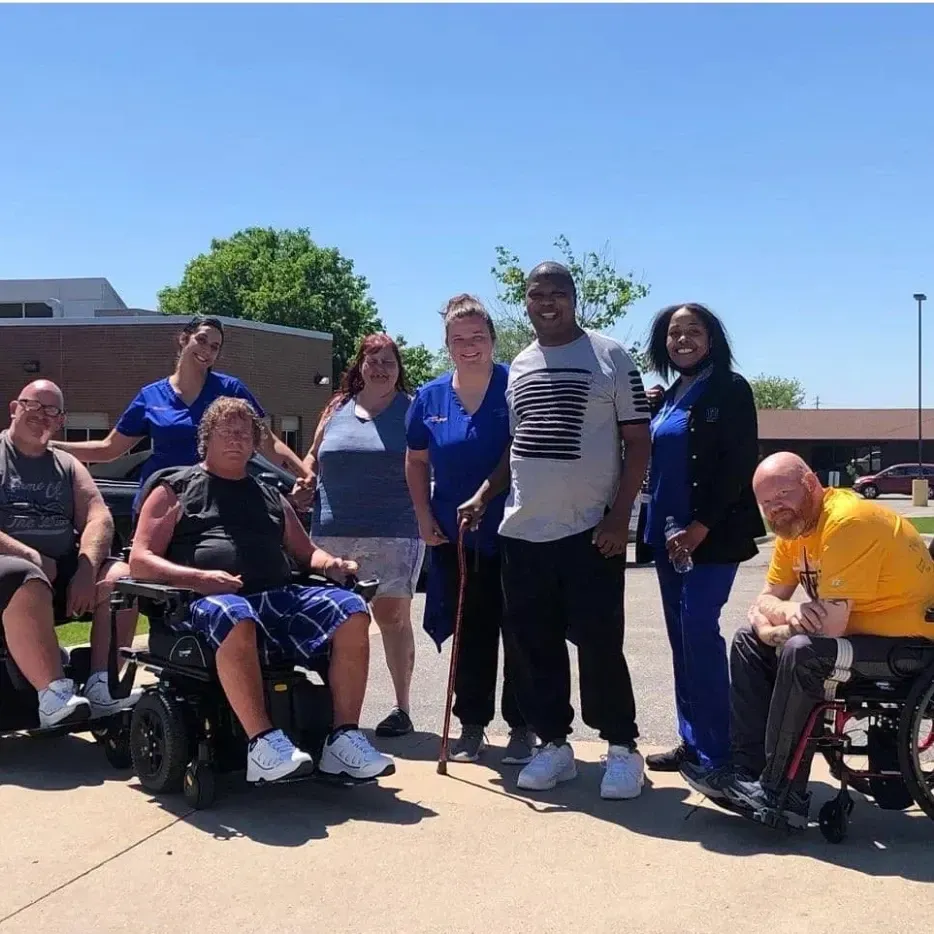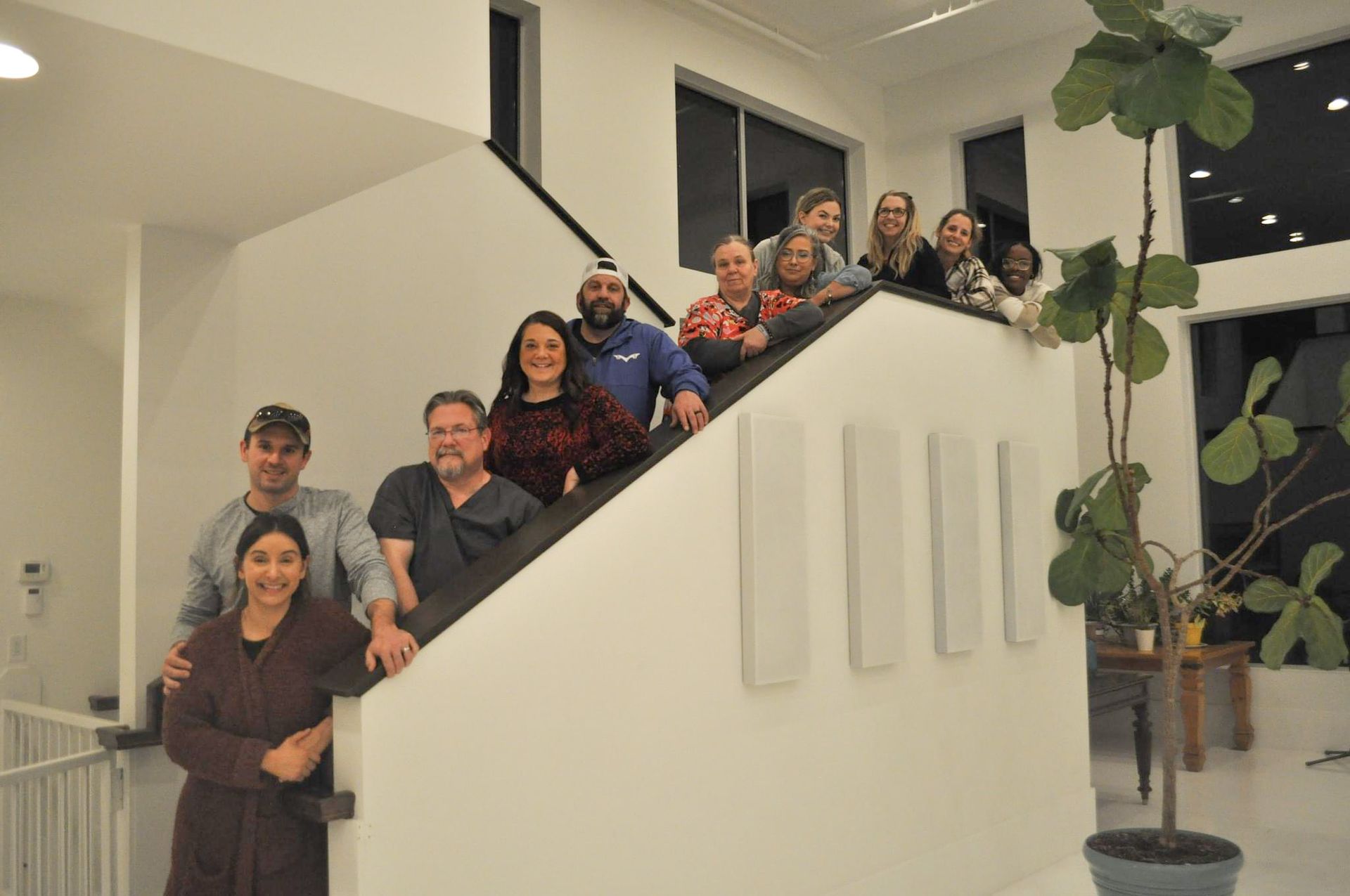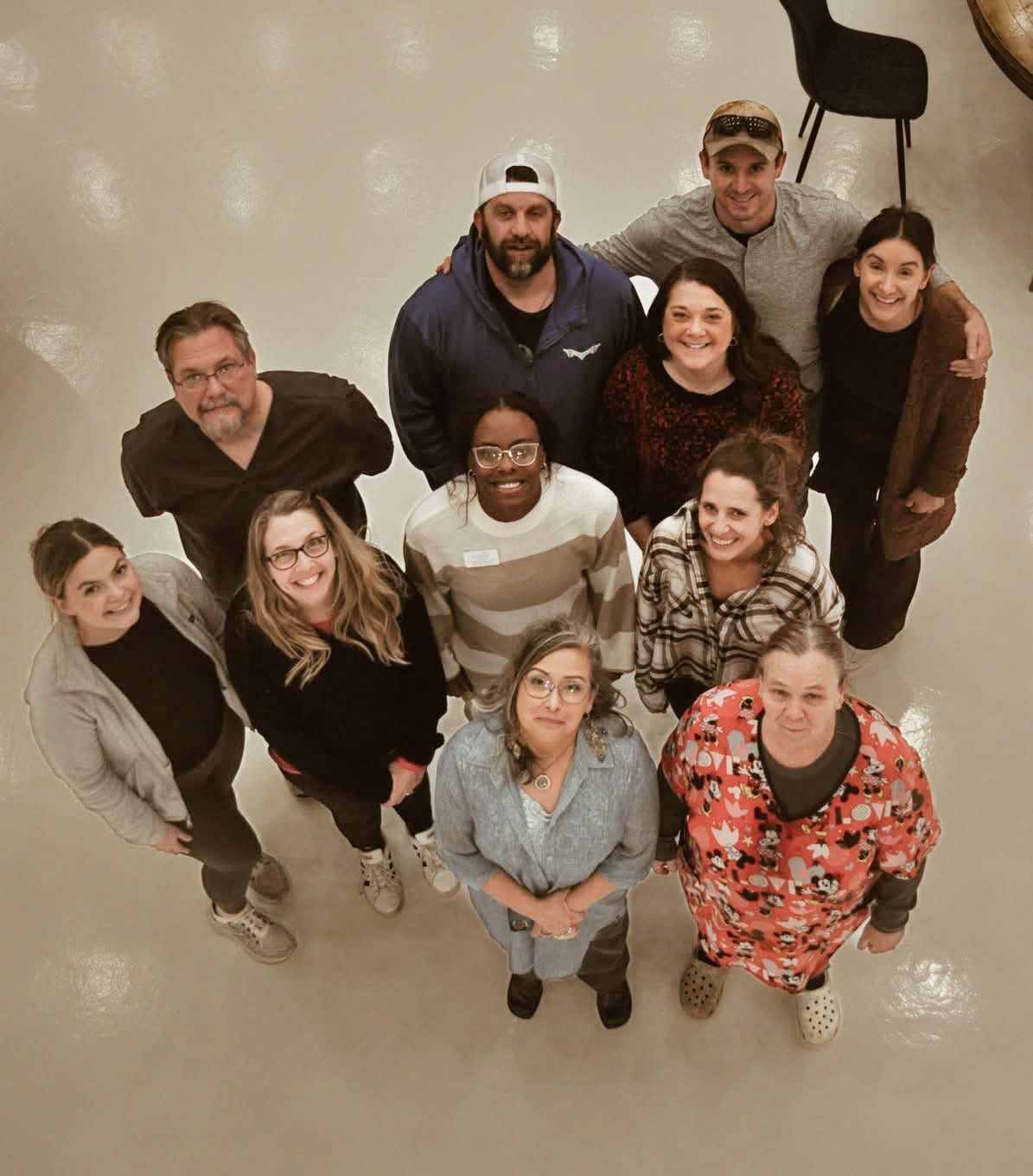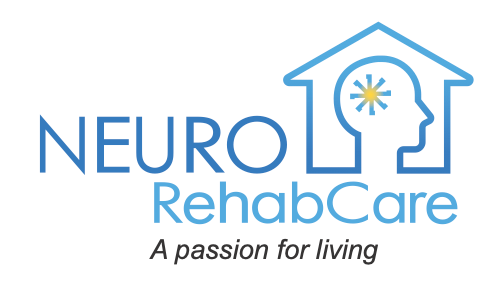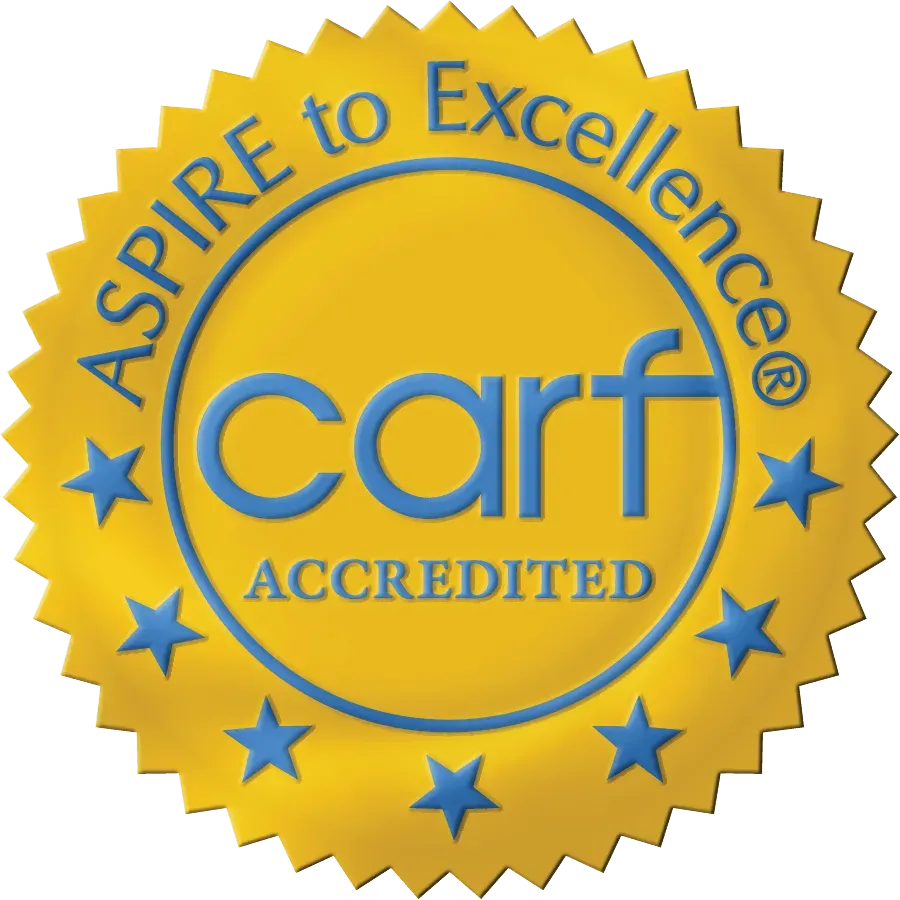Comprehensive Neurological Rehabilitation Services
At NEURO RehabCare in Kansas City, KS
We're
dedicated to providing high-quality, personalized neurological rehabilitation to individuals recovering from brain injuries, spinal cord injuries, strokes, and other neurological conditions. Our brain injury program is designed to help patients regain independence, confidence, and physical function in a compassionate, home-like environment.
Your Recovery Journey Starts Here!
Click here to learn more about our Kansas City location!
Programs at Our Kansas City Location
We offer a variety of structured programs at our Kansas City residential rehabilitation center that address the needs of patients recovering from neurological conditions, including spinal cord injury rehabilitation, stroke rehabilitation therapy, and TBI rehab.
A 24/7 support in a home-like setting, with continuous therapeutic activities for patients requiring structured care.
A comprehensive program designed for patients recovering from neurological injuries, combining physical, cognitive, and emotional therapies.
Focused on addressing behavioral and emotional challenges, helping patients develop positive coping strategies and resilience.
Therapy that is delivered in home or community settings, ideal for patients transitioning to everyday life.
A program designed for patients moving towards independent living, offering assistance as needed to build confidence and autonomy.
Our Services in Kansas City
Dedicated Support with a Compassionate Approach
At our Kansas City, Kansas, location, we offer a variety of therapeutic services aimed at supporting individuals at every stage of recovery.
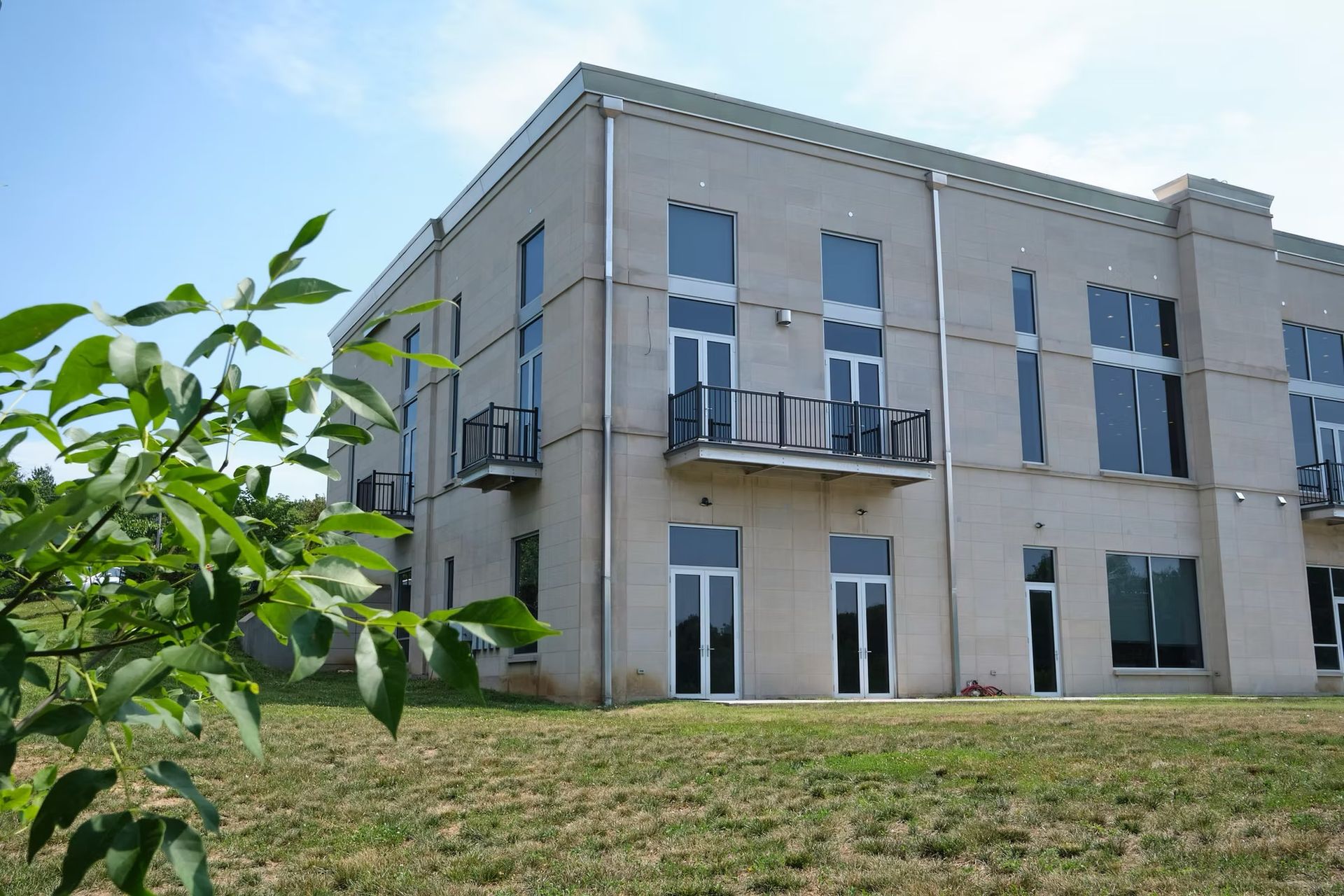
Rehabilitation Physician Services:
Expert medical oversight and treatment for patients recovering from neurological conditions.
Cognitive & emotional support to help patients rebuild mental functions and manage behavioral challenges.
Counseling Services:
Emotional and psychological support for both patients and their families throughout the rehabilitation process.
Tailored exercises to improve strength, mobility, and overall physical function.
Practical skills training to improve daily independence, from personal care to home management.
Therapy to improve communication, cognitive-communication skills, and swallowing abilities.
Vision Therapy:
Specialized exercises to address visual processing issues, promoting cognitive and physical recovery.
Vestibular Rehabilitation:
Therapy to improve balance and manage dizziness, increasing stability and confidence in movement.
Seating and Mobility:
Assessment and training to optimize mobility and independence with assistive devices.
Cognitive Therapy:
Targeted exercises for memory, attention, and problem-solving, essential for daily functioning.
Group Therapy:
A supportive group setting to connect and share with others in similar recovery stages.
Dietary Consultation:
Nutritional support to enhance wellness & recovery during rehabilitation, & meet individual dietary needs.
Equine Therapy:
Therapeutic interaction with horses to improve physical coordination and emotional well-being.
Aquatic Therapy:
Low-impact water therapy structured to enhance mobility, strength, and flexibility.
Caregiver Training and Education:
Resources and support to help family members assist in the recovery process.
Proud to Serve Kansas City & Beyond
The Preferred Choice For Neurological Rehabilitation
Whether you are local or from another state, our Kansas City facility & team are here to provide you or your loved one with specialized care needed to help find a new passion for living.
Why Choose NEURO RehabCare in Kansas City?
Patient-Centered Care in the Heart of Kansas City
Our Kansas City team is committed to providing personalized, compassionate care. We strive to create an environment that encourages healing, growth, and confidence for both patients and their families.
Customized Care Plans:
Every patient is unique, and we develop personalized rehabilitation plans tailored to their specific needs and recovery goals.
Experienced, Compassionate Team:
Our team of expert therapists, physicians, and support staff are dedicated to delivering empathetic, top-quality care.
Community Oriented:
As a proud member of the Kansas City community, we provide local resources and support for families navigating the recovery process.
Comfort & Healing in
Our Kansas City Residential Care Facility
At our Kansas City facility, we combine cutting-edge neurological care with a supportive environment designed to enhance every patient’s path to recovery. Thoughtfully crafted spaces and specialized services ensure a seamless blend of expert rehabilitation and personalized comfort.
Private, Comfortable Suites:
Modern private rooms featuring accessible designs to provide patients with a restful, secure space for healing.
Advanced Rehabilitation Gym:
Outfitted with leading technology to support mobility restoration, strength training, and functional independence.
Peaceful Courtyards & Green Spaces:
Serene outdoor areas encourage relaxation, and reflection, to suppport emotional and physical recovery.
Community-Focused Environment:
A warm, inclusive atmosphere where patients and families feel supported by a compassionate community.
Comprehensive Therapy Services:
Integrated physical, occupational, and speech therapy programs tailored to meet our patients' complex needs.
Holistic Wellness Programs:
Engagement activities designed to stimulate cognitive function and foster social connection.
Connect with NEURO RehabCare in Kansas City
If you or a loved one is in need of specialized neurological rehabilitation after a brain injury, stroke, or spinal cord injury, we are here to help.
Contact us today to learn more about our brain injury recovery programs, schedule a visit, or discuss how our Kansas City residential care facility can support your family member on the path to recovery.
Our Reviews
Comprehensive Neurological Rehabilitation Services
At NEURO RehabCare in Kansas City, KS
We're
dedicated to providing high-quality, personalized neurological rehabilitation to individuals recovering from brain injuries, spinal cord injuries, strokes, and other neurological conditions. Our brain injury program is designed to help patients regain independence, confidence, and physical function in a compassionate, home-like environment.
Your Recovery Journey Starts Here!
Click here to learn more about our Kansas City location!
Programs at Our Kansas City Location
We offer a variety of structured programs at our Kansas City residential rehabilitation center that address the needs of patients recovering from neurological conditions, including spinal cord injury rehabilitation, stroke rehabilitation therapy, and TBI rehab.
A 24/7 support in a home-like setting, with continuous therapeutic activities for patients requiring structured care.
A comprehensive program designed for patients recovering from neurological injuries, combining physical, cognitive, and emotional therapies.
Focused on addressing behavioral and emotional challenges, helping patients develop positive coping strategies and resilience.
Therapy that is delivered in home or community settings, ideal for patients transitioning to everyday life.
A program designed for patients moving towards independent living, offering assistance as needed to build confidence and autonomy.
Our Services in Kansas City
Dedicated Support with a Compassionate Approach
At our Kansas City, Kansas, location, we offer a variety of therapeutic services aimed at supporting individuals at every stage of recovery.

Rehabilitation Physician Services:
Expert medical oversight and treatment for patients recovering from neurological conditions.
Cognitive & emotional support to help patients rebuild mental functions and manage behavioral challenges.
Counseling Services:
Emotional and psychological support for both patients and their families throughout the rehabilitation process.
Tailored exercises to improve strength, mobility, and overall physical function.
Practical skills training to improve daily independence, from personal care to home management.
Therapy to improve communication, cognitive-communication skills, and swallowing abilities.
Vision Therapy:
Specialized exercises to address visual processing issues, promoting cognitive and physical recovery.
Vestibular Rehabilitation:
Therapy to improve balance and manage dizziness, increasing stability and confidence in movement.
Seating and Mobility:
Assessment and training to optimize mobility and independence with assistive devices.
Cognitive Therapy:
Targeted exercises for memory, attention, and problem-solving, essential for daily functioning.
Group Therapy:
A supportive group setting to connect and share with others in similar recovery stages.
Dietary Consultation:
Nutritional support to enhance wellness & recovery during rehabilitation, & meet individual dietary needs.
Equine Therapy:
Therapeutic interaction with horses to improve physical coordination and emotional well-being.
Aquatic Therapy:
Low-impact water therapy structured to enhance mobility, strength, and flexibility.
Caregiver Training and Education:
Resources and support to help family members assist in the recovery process.
Proud to Serve Kansas City & Beyond
The Preferred Choice For Neurological Rehabilitation
Whether you are local or from another state, our Kansas City facility & team are here to provide you or your loved one with specialized care needed to help find a new passion for living.
Why Choose NEURO RehabCare in Kansas City?
Patient-Centered Care in the Heart of Kansas City
Our Kansas City team is committed to providing personalized, compassionate care. We strive to create an environment that encourages healing, growth, and confidence for both patients and their families.
Customized Care Plans:
Every patient is unique, and we develop personalized rehabilitation plans tailored to their specific needs and recovery goals.
Experienced, Compassionate Team:
Our team of expert therapists, physicians, and support staff are dedicated to delivering empathetic, top-quality care.
Community Oriented:
As a proud member of the Kansas City community, we provide local resources and support for families navigating the recovery process.
Beyond Boundaries
Comfort & Healing in
Our Kansas City Residential Care Facility
At our Kansas City facility, we combine cutting-edge neurological care with a supportive environment designed to enhance every patient’s path to recovery. Thoughtfully crafted spaces and specialized services ensure a seamless blend of expert rehabilitation and personalized comfort.
Private, Comfortable Suites:
Modern private rooms featuring accessible designs to provide patients with a restful, secure space for healing.
Advanced Rehabilitation Gym:
Outfitted with leading technology to support mobility restoration, strength training, and functional independence.
Peaceful Courtyards & Green Spaces:
Serene outdoor areas encourage relaxation, and reflection, to suppport emotional and physical recovery.
Community-Focused Environment:
A warm, inclusive atmosphere where patients and families feel supported by a compassionate community.
Comprehensive Therapy Services:
Integrated physical, occupational, and speech therapy programs tailored to meet our patients' complex needs.
Holistic Wellness Programs:
Engagement activities designed to stimulate cognitive function and foster social connection.
Connect with NEURO RehabCare in Kansas City
If you or a loved one is in need of specialized neurological rehabilitation after a brain injury, stroke, or spinal cord injury, we are here to help. Contact us today
to learn more about our brain injury recovery programs, schedule a visit, or discuss how our Kansas City residential care facility can support your family member on the path to recovery.
